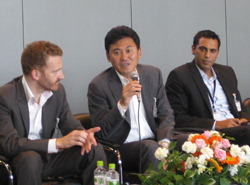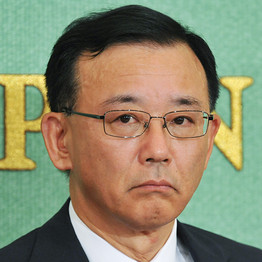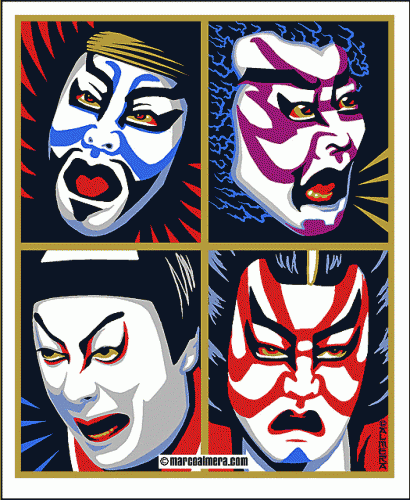
There has been some debate recently over the state of English in Japan.
Most notably, Rakuten President Hiroshi Mikitani has announced that all his employees must be able to conduct daily business in English by 2012… or else. Rakuten has made several international deals lately, including the purchase of major Ebay seller Buy.com and the deal to set up a Chinese online retailing site with Chinese search engine Baidu. Also, Fast Retailing, operator of Uniqlo discount clothing stores, has mandated that all meetings with at least one native English speaker be conducted in English.
In reaction, the Nikkei has printed an editorial about the role it thinks English plays in the development of corporate Japan. Relevant excerpts follow:
Japanese have no choice but to adopt English to take advantage their overseas employees’ knowledge and personal connections. If there are employees who feel discriminated against because of their language or any other aspects, business leaders should prioritize tackling bias in the workplace.
While companies must enhance their employees English-language training, lawmakers and educators should understand that English has become more important than ever for Japan Inc.
English education in Japan has been criticized for being skewed toward reading comprehension. Although teaching methods have gradually improved, due in part to the increased use of native English speakers as teachers, but other countries show how far Japan still has to go.
It is also important to provide support for people who study English while working.
People’s basic skills English should be improved, but of course that doesn’t mean all Japanese must be fluent in the language.
Japan needs a national strategy that defines who needs English and how fluent they should be.
Personally, I feel bad for the Rakuten employees who are going to be forced to uncomfortably and unnecessarily speak English to each other in daily activities, even though I see the point Mikitani is trying to make. If doing business overseas requires English, then why not demand that all your employees speak that language? All the same, I am sure he will realize eventually that Japanese education has dismally failed most of his workers. As a practical matter, most Japanese people cannot speak English at an acceptable business level. Unless the Japanese education system can deliver, it won’t be practical to simply command Japanese employees to speak the language.




